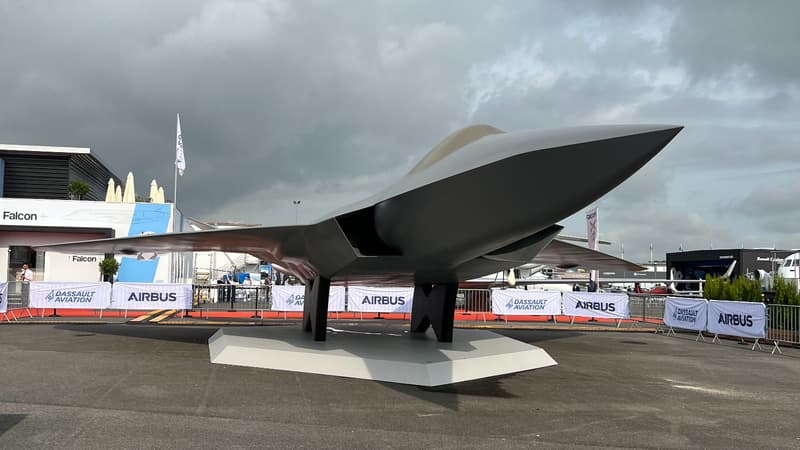The CEO of Dassault, Éric Trappier, said on Tuesday, July 22, the inefficiency of the European SCAF program, the air combat system of the future, developed by France, Germany and Spain, believing that it could not be carried out in its current form.
When he was asked to know if Dassault, which represents France in this project, was ready to leave this program, whose governance problems denounce, Éric Trappier replied: “It is not a problem to leave, it is a problem of whether (the project) continues or not.”
Run by Berlin and Paris in 2017 and then joined Madrid, the SCAF is the largest defense project in Europe. It is particularly strategic for France, since in particular it must provide a replacement for the French rafale since 2040.
But it is dominated by tensions between Dassault, the French project manager and Airbus, which does not represent France in this project, but Germany, through its branch of defense and space. In early July, France had informed Germany that she wanted to obtain a participation of around 80% in the project.
Dassault recurring threats
While Europe seeks to build its defense, France and Germany will try to unlock the archive during a meeting on Wednesday in Berlin of President Emmanuel Macron with Chancellor Friedrich Merz.
“The question arises from the efficiency of the project, which is three countries (…) where there is no real leader, but three ‘co-co-co’, said Éric Trappier during a press conference during the presentation of the semiannual results of the group, the manufacturer of Rafale’s combat aircraft.
“How can I have leadership while I have someone who weighs double?” He added, emphasizing that this would create problems in the choice of good subcontractors.
Dassault had already threatened in April to leave the SCAF program if the framework did not renegotiate at the end of 2025.
Airbus advocates compliance with political and industrial agreements concluded and believes that the program could be compromised without political intervention in the late 2025.
GCAP rival pressure
Friedrich Merz was optimistic at the beginning of July about the possibility of resolving the “differences” with France soon in the development of future combat planes while insisted on the need to “respect the agreements concluded.”
Phase 1B of the program, launched in 2023 and that should end in 2026, aims to develop the technologies that will be aboard a demonstrator, a kind of pre-project, which must fly in 2028-2029.
Phase 2 provides the proper construction of the demonstrator, which Dassault wants to perform, and its flight tests.
The program partners are under pressure to accelerate their development in the face of the competition of a rival project, the Global Combat Air Program (GCAP), between British BAE systems, Italian Leonardo and Japanese Mitsubishi Heavy industries.
Questioned about the interest manifested by Belgium for SCAF, Mr. Trappier once again made the decision for this country from the American F-35 fighting plans and not by the Rafale “in the midst of a commercial war.”
Belgium announced in early July the intention of placing a new order of 11 American F-35 hunters as part of the increase in military spending, Belgian defense minister Theo Franken believes that the F-35 comes to its competitors.
“Putin does not fear Eurofighter, Rafale or Saab Flipen. He is afraid of F-35 because we don’t see it! There is no discussion about the superiority of this plane,” the Belgian newspaper recently told the newspaper.
Source: BFM TV


